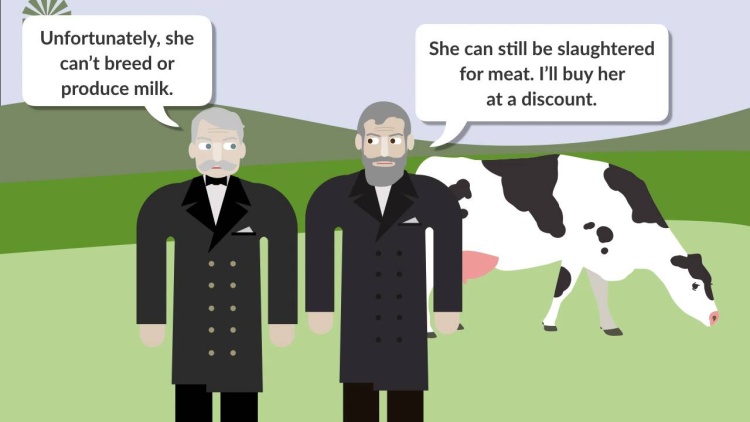Sherwood v. Walker
Michigan Supreme Court
33 N.W. 919, 66 Mich. 568 (1887)
- Written by Joseph Bowman, JD
Facts
Sherwood (plaintiff) requested to purchase a cow owned by Walker (defendant), a farmer. Walker told Sherwood that most of his cows were barren and would not breed. Sherwood looked at Walker’s cattle and decided to purchase a cow known as Rose who was believed by both parties to be barren. Walker sent a letter to Sherwood agreeing to sell Rose for five and a half cents per pound, minus 50 pounds. This reflected an amount typically payable for cattle used only as beef and not for breeding. At the same time, Walker sent a letter to his employee Graham requesting that Graham prepare Rose to be picked up by Sherwood. Sherwood sent a letter to Graham informing him of the date and time of pickup. However, when Sherwood arrived, Graham stated that Walker told him to not sell the cow to Sherwood, as Walker had discovered that Rose was actually with calf and not barren. Thus, because she was a breeder, Rose was worth a significantly higher price. Sherwood successfully instituted a writ of replevin and recovered Rose. He later had her weighed and found her to be 1,420 pounds. At the subsequent trial, Sherwood argued that title for Rose passed to him at the moment Walker drafted a letter agreeing to sell her for a certain amount per pound. Walker argued, however, that title to Rose never passed because Walker never weighed Rose and thus never confirmed a final price for her. The trial court held for Sherwood, and the appellate court affirmed. Walker appealed.
Rule of Law
Issue
Holding and Reasoning (Morse, J.)
Dissent (Sherwood, J.)
What to do next…
Here's why 907,000 law students have relied on our case briefs:
- Written by law professors and practitioners, not other law students. 47,100 briefs, keyed to 996 casebooks. Top-notch customer support.
- The right amount of information, includes the facts, issues, rule of law, holding and reasoning, and any concurrences and dissents.
- Access in your classes, works on your mobile and tablet. Massive library of related video lessons and high quality multiple-choice questions.
- Easy to use, uniform format for every case brief. Written in plain English, not in legalese. Our briefs summarize and simplify; they don’t just repeat the court’s language.





